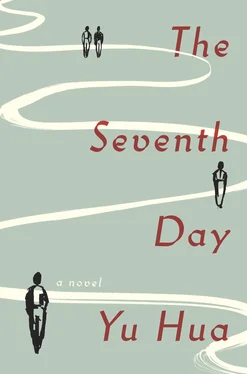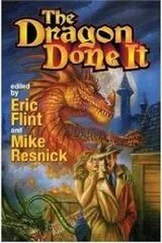The fog was thick when I left my bedsit and ventured out alone into the barren and murky city. I was heading for what used to be called a crematorium and these days is known as a funeral parlor. I had received a notice instructing me to arrive by 9:00 a.m., because my cremation was scheduled for 9:30.
The night before had resounded with the sounds of collapsing masonry — one huge crash after another, as though a whole line of buildings was too tired to stay standing and had to lie down. In this continual bedlam I drifted fitfully between sleep and wakefulness. At daybreak, when I opened the door, the din suddenly halted, as though just by opening the door I had turned off the switch that controlled the noise. On the door a slip had been posted next to the notices that had been taped there ten days earlier, asking me to pay the electricity and water bills. In characters damp and blurry in the fog, the new notice instructed me to proceed to the funeral parlor for cremation.
Fog had locked the city into a single, unchanging guise, erasing the boundaries between day and night, morning and evening. As I walked toward the bus stop, several human figures appeared out of nowhere, only to disappear just as quickly. I cautiously walked ahead for a distance, but found my passage blocked by some kind of sign that appeared to have suddenly grown out of the ground. I thought there ought to be some numbers on it — if the number 203 was there, then this was the stop for the bus I wanted to take. But I couldn’t make out the numbers, even when I felt for them with my hand. When I rubbed my eyes, I seemed to see the number 203, suggesting that this was indeed the stop. But now I had a strange feeling that while my right eye was in the original place, my left eye had moved outward to my cheekbone. Then I became aware that next to my nose a foreign object had attached itself to my face, and something else was caught underneath my chin. When I felt around with my hand, I discovered that my nose was next to my nose and my chin next to my chin — somehow they had altered their locations.
The fog was now even more dense. Amid the murky figures and ghostly buildings I heard sounds of life rising and falling like ripples of water. Then, as I took a few tentative steps farther on, hoping to penetrate the gloom, I heard cars crashing into each other. The fog had drenched my eyes and I couldn’t see the collisions — all I was aware of was a series of violent impacts. A car burst out of the fog behind me and sped past and into the sounds of life, and the sounds churned and popped like boiling water.
I stood there uncertainly for a little while, but soon realized that if there was a pileup on this stretch of road, the No. 203 bus would not arrive anytime soon and I should go on to the next stop.
As I walked on ahead, snowflakes came billowing out of the fog. They seemed to glow like patches of light, and when they landed on my face, my skin felt slightly warmer. I stood still, watching the snowflakes fall through the air and settle on me. My clothes gradually stood out more clearly against the snow.
This was an important day, I realized — my first day of death. I hadn’t washed and I hadn’t dressed in funerary costume — I was simply wearing my ordinary clothes, with a baggy old overcoat on top, as I headed toward the funeral parlor. Stricken with sudden misgivings at my sloppy attire, I turned on my heel and headed back in the direction from which I’d come.
The falling snow had brought some light to the city and the thick fog seemed to slowly dissipate as I walked, so that I could faintly make out pedestrians and vehicles going to and fro. As I reached the bus stop I had left shortly before, a scene of utter confusion met my eyes: the road was completely blocked by a chaotic tangle of over twenty vehicles, with police cars and ambulances ringing the perimeter. There were people lying on the ground and others being pulled from cars that were twisted completely out of shape; there were people moaning and people crying and people who made no sound at all. I stopped for a minute, and this time I could see clearly the number 203 on the sign. I made my way past.
When I got back to my bedsit, I undressed, walked naked over to the shower enclosure, and turned on the faucet. As I filled my palms with water and began to wash, I found that my body was covered in wounds, and I gingerly removed the bits of gravel and splinters of wood that were embedded in the open lesions.
Just then my mobile phone started to ring. I found this strange, because service had been disconnected two months earlier for nonpayment, and here suddenly it was ringing again. I picked it up and pressed the listen button. “Hello?” I said quietly.
A voice responded. “Is that Yang Fei?”
“That’s right.”
“Funeral parlor here. Where are you now?”
“I’m at home.”
“What are you doing?”
“I’m washing.”
“It’s almost nine o’clock now! How can you still be washing?”
“I’ll be there soon.” I felt embarrassed.
“Hurry up, then, and be sure to bring your reservation slip.”
“Where will I find that?”
“It’ll be on your door.”
Then the caller hung up. I wasn’t very happy about this — why was there such a rush? I put down the phone and renewed my efforts to clean my wounds. I picked up a bowl, filled it with water, and used it to wash out the remaining grit and splinters. This helped to speed things up.
Still dripping wet, I walked over to the wardrobe and opened it, in search of a funerary costume. But I could find nothing answering this description; the closest thing was a pair of white silk pajamas with a low-key flower pattern and the characters, now faded, that Li Qing had embroidered in red thread on the chest — a souvenir of my brief marriage. She had carefully chosen two pairs of traditional Chinese-style pajamas for us one day, and had sewn my name on hers and her name on mine. I had never worn these pajamas since our marriage broke up, but now, when I put them on once more, their color seemed as warm as that of snow.
I opened the door and carefully studied the funeral parlor notice posted on the outside. On the slip was written A3—a reservation number, by the look of it — so I detached it, folded it carefully, and put it in my pajama pocket.
As I was about to leave, I had the feeling I’d forgotten something and stood for a moment in the swirling snow to ponder. Then I remembered — a black armband. I was a single man, parentless and childless, with nobody to come and mourn my passing, so it was up to me to wear one.
I went back into my room and riffled through the wardrobe for some black cloth. After a prolonged search all I could find was a black shirt so worn that it was now turning gray. I cut off part of the sleeve and placed it over my left arm. My mourning attire clearly left something to be desired, but I felt tolerably satisfied with the effect.
Once more my phone rang. “Is that Yang Fei?”
“Yes, hello.”
“Funeral parlor here. Are you still planning to get cremated?”
I hesitated for a moment. “Yes, I am.”
“It’s nine-thirty now — you’re late.”
“Is it so important to be on time?” I wanted to do things right.
“If you want to get cremated, you need to hurry it up.”

Entering the funeral parlor, I found the waiting room spacious and deep. The fog outside had gradually dissipated but the waiting room itself was still wreathed in mist, and some widely spaced wall sconces in the shape of candles gave off a pale glow, also the shade of snow. Somehow I felt warmed by the color white.
Читать дальше












